Memories of Cunard's 'spiritual home' in Liverpool
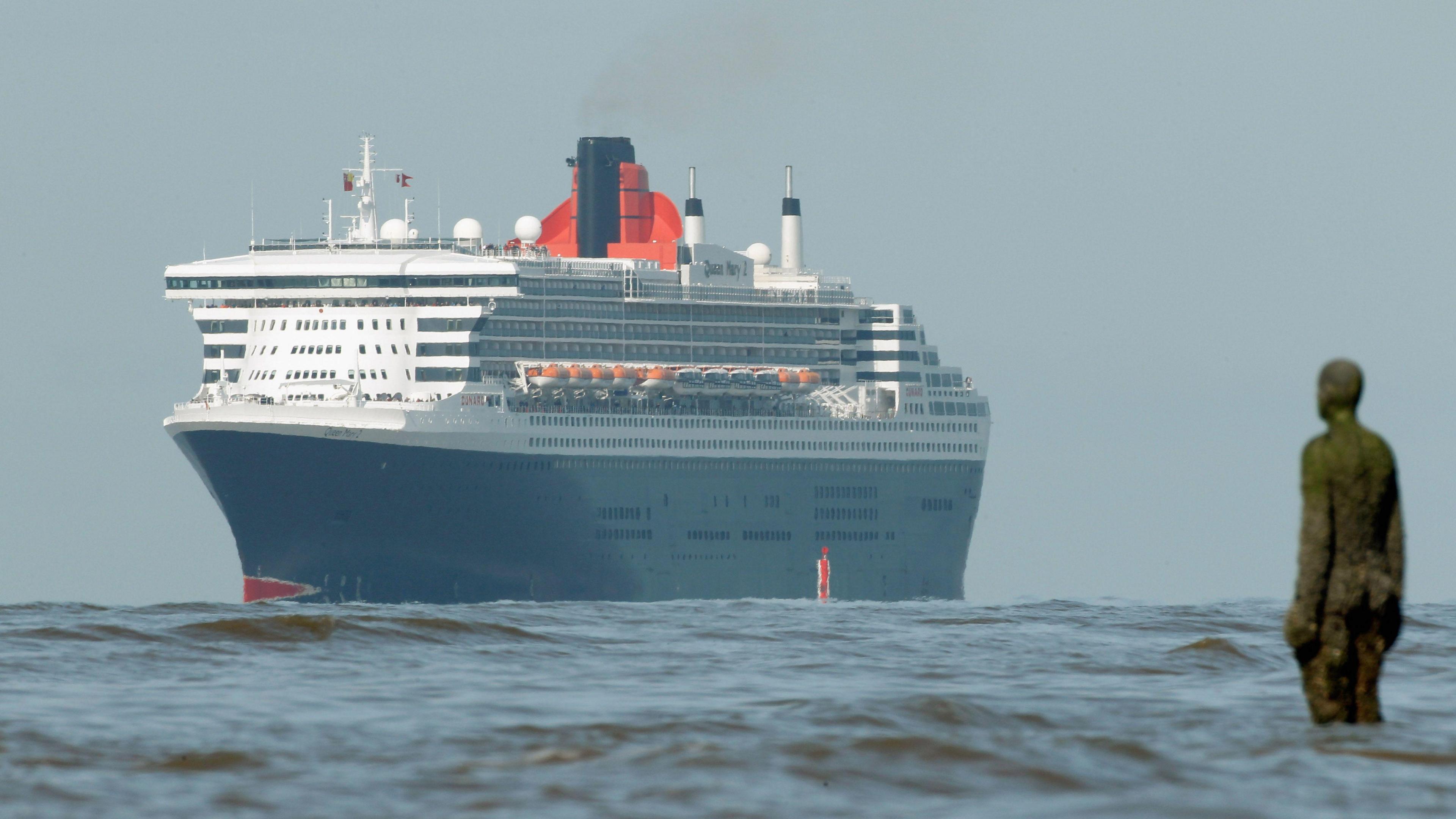
Cunard's Queen Mary 2 sails past Antony Gormley's Another Place on the approach to the Liverpool in 2011
- Published
People in Liverpool are sharing their memories of Cunard Line as the city is set to stage the naming ceremony for the cruise company's newest ship.
The Queen Anne will be named in Liverpool, where Cunard started its transatlantic route in 1840 and went on to take millions of passengers to North America.
Cunard has said the vessel will be named in Liverpool because it was its "spiritual home" despite moving its headquarters to Southampton in 1967.
The city has shared in Cunard's successes and tragedies and, for many families in Liverpool, its unique bond with the cruise firm still exists.

Stephanie Vass said Cunard Yanks like her grandfather "brought the world" back from the US
Canadian Samuel Cunard, who founded the company, won a contract with the British government to take mail across the Atlantic.
His first ship left Liverpool in 1840.
When the company embraced passengers the shipping line grew rapidly. Within 30 years it was employing 11,500 people and had amassed a fleet of 46 ships.
With its headquarters in Liverpool, it seemed everyone in the city either worked for or knew someone who worked for Cunard.
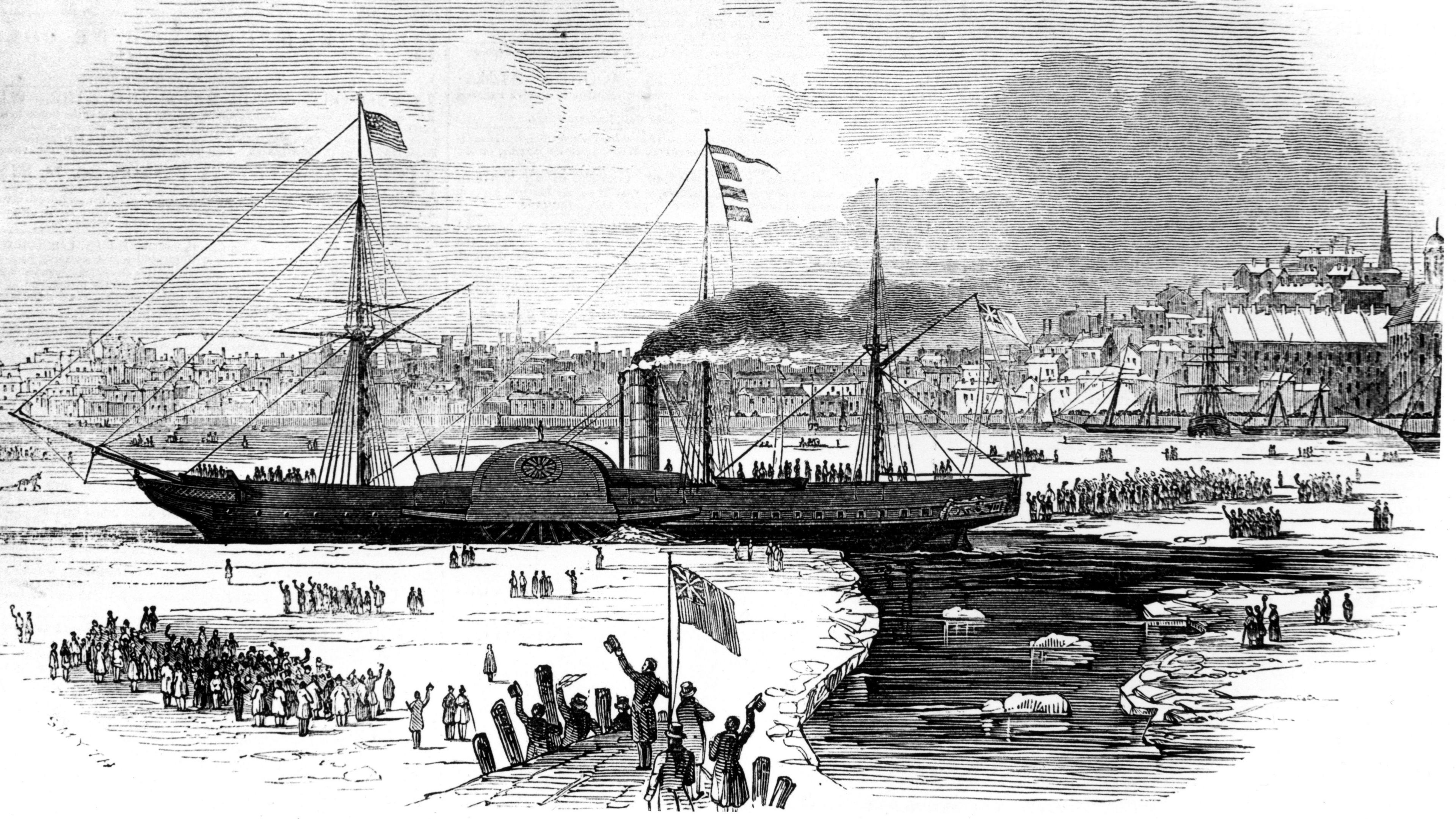
Cunard Line's first transatlantic liner Britannia made her first voyage in 1840
Stephanie Vass said her grandfather, Billy Harrison, worked on the cruise liners.
He and his shipmates were known as Cunard Yanks.
She said: "They sailed from Liverpool and they brought home the world, and they really did.
"My granddad and his friends would talk about bringing one of the first juke boxes back to Liverpool full of 45s - of records that nobody in Liverpool had ever heard before."
She said they also brought everything from "washing machines to movie recorders to clothes".
She added: "It must have been absolutely fantastic. People would've been waiting for them to dock and think, 'what have they brought me now'."
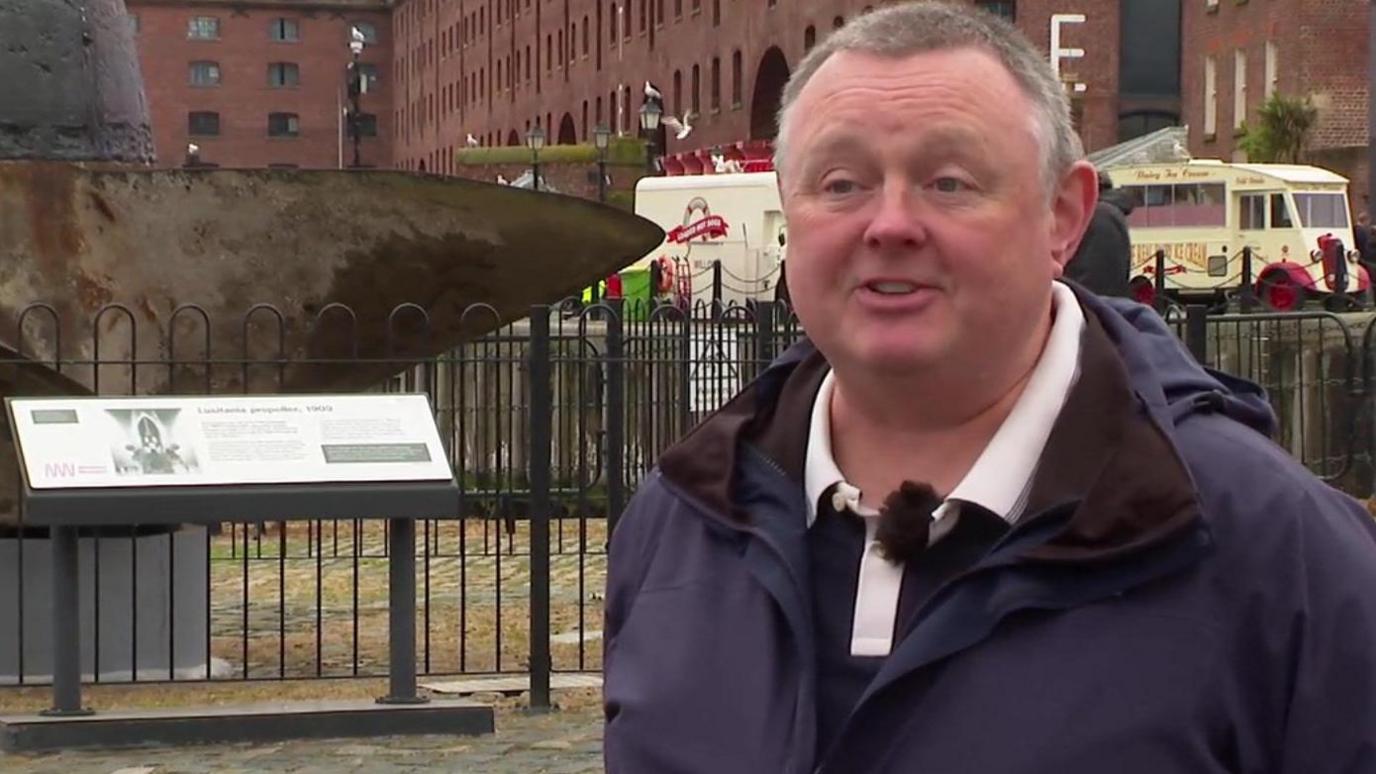
Andy Steele's great-grandfather died when the Lusitania was torpedoed by a German U-boat in 1915
For Andy Steele, his family was hit by tragedy when the Lusitania was torpedoed by a German U-boat on 7 May 1915.
His great-grandfather, chief naval quartermaster Thomas Evans, was among 1,200 who were killed.
About half of those who died, as the Lusitania made her way from New York to Liverpool, were from Merseyside.
Mr Steele said: "My great-grandfather left the house we still live in back in April 1915 for what should have been three weeks but he never came back.
"My grandfather, who was only 12 when the Lusitania was torpedoed, developed a stutter at the time and he never really recovered from that until he died in his 80s."
He said his grandfather and mother would "tell him stories of Thomas Evans and his history, and of him and his wife living in the house we now live in".
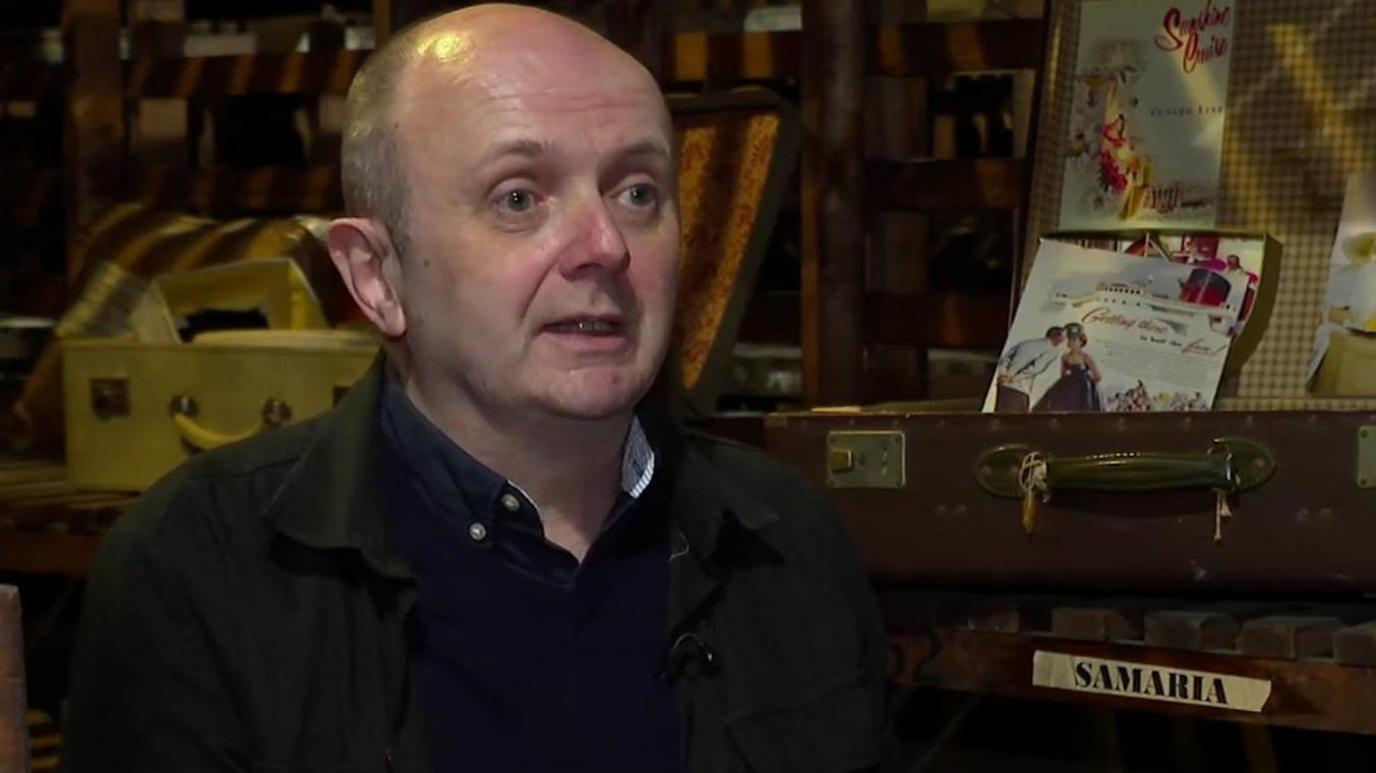
Cunard liners at the city's Pier Head were once recognisable landmarks, Ian Murphy said
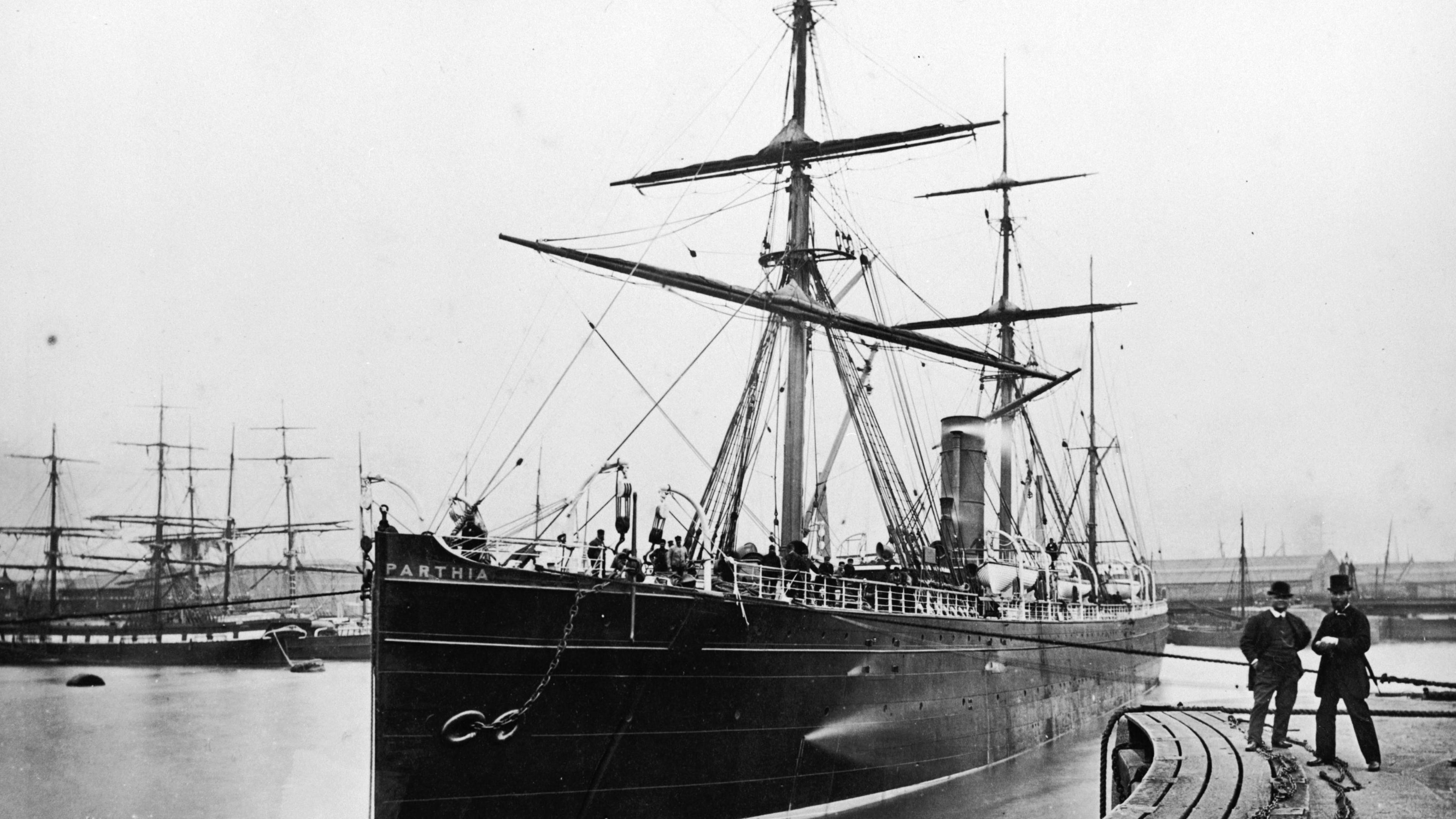
SS Parthia (pictured circa 1895) was one of Cunard's steamships
Ian Murphy, head of the Maritime Museum, said: "People in Liverpool would have felt a really close connection to Cunard.
"The family connections of people who knew someone who worked on one of the ships would've been immediate," he said.
The sight of Cunard liners at the city's Pier Head were once "landmarks that have been very recognisable as a part of the Liverpool waterfront", he added.
The basement at the Cunard building, the company's headquarters before it moved to Southampton, has stood still in time.
The huge shelves where the luggage for passengers travelling to North America would have been stored remain, which Mr Murphy said showed the "sheer numbers of people who were travelling across the Atlantic at that time".
He said it gave "a sense of just how big an industry passenger travel was in Liverpool in the early 20th Century".
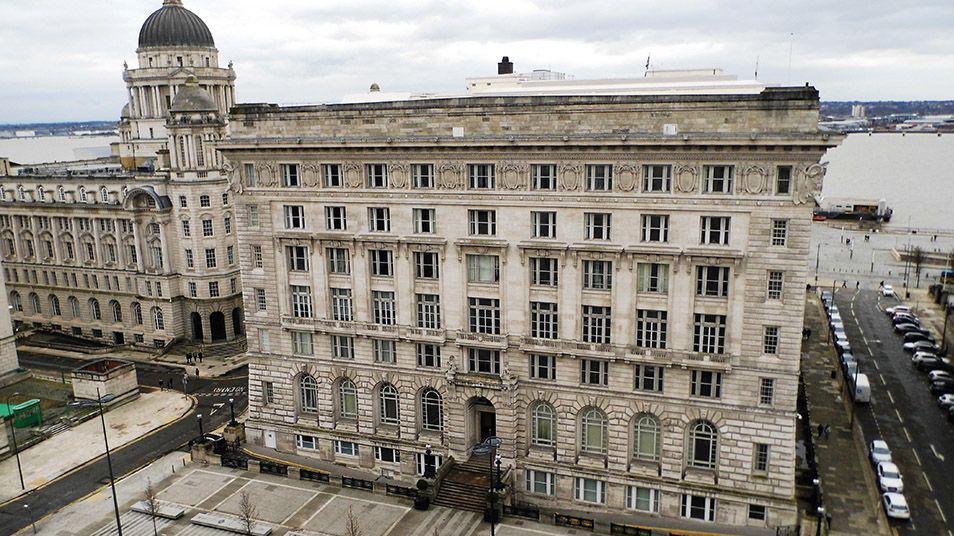
Cunard left its Liverpool headquarters in 1967 to move to Southampton
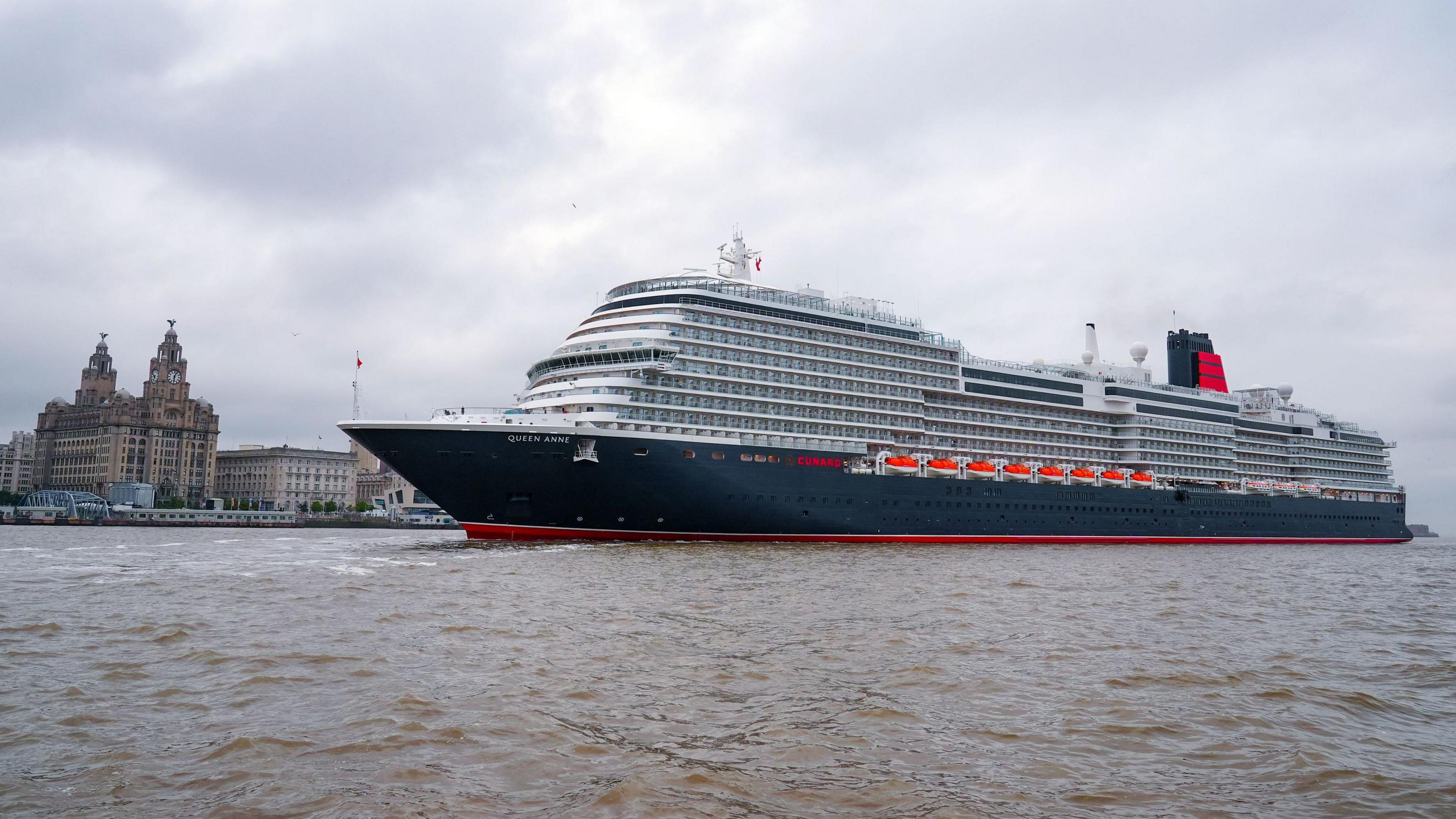
The sight of Cunard cruise ships at the Pier Head used to be a familiar sight
Organisers are expecting thousands of people to turn out for the official naming ceremony of its new £479m vessel, which can carry 3,000 passengers.
It will be hosted by Busted star Matt Willis and his TV presenter wife Emma Willis from 16:00 BST and feature a performance from Italian tenor Andrea Bocelli.
Related topics
More like this
- Published22 May 2024
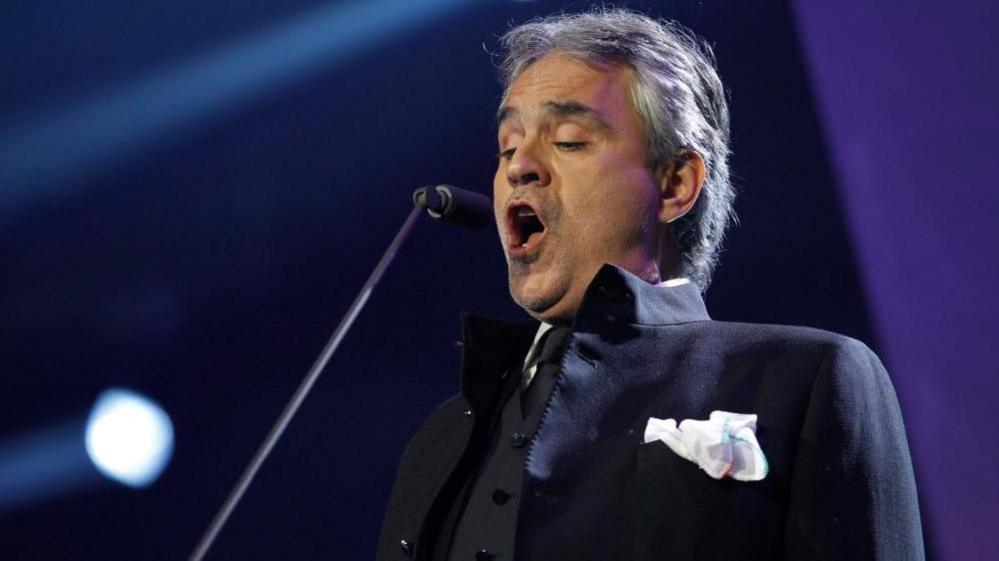
- Published5 February 2024
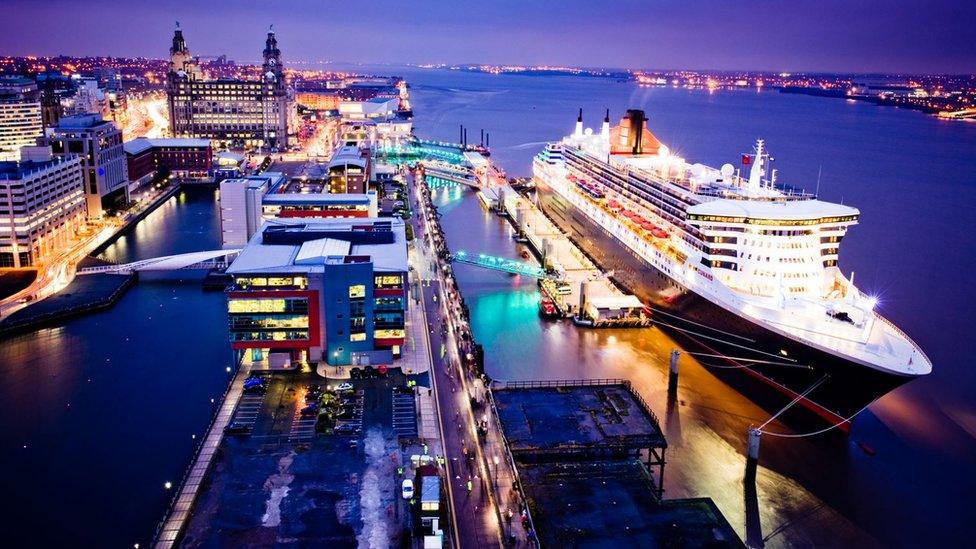
- Published3 May 2024
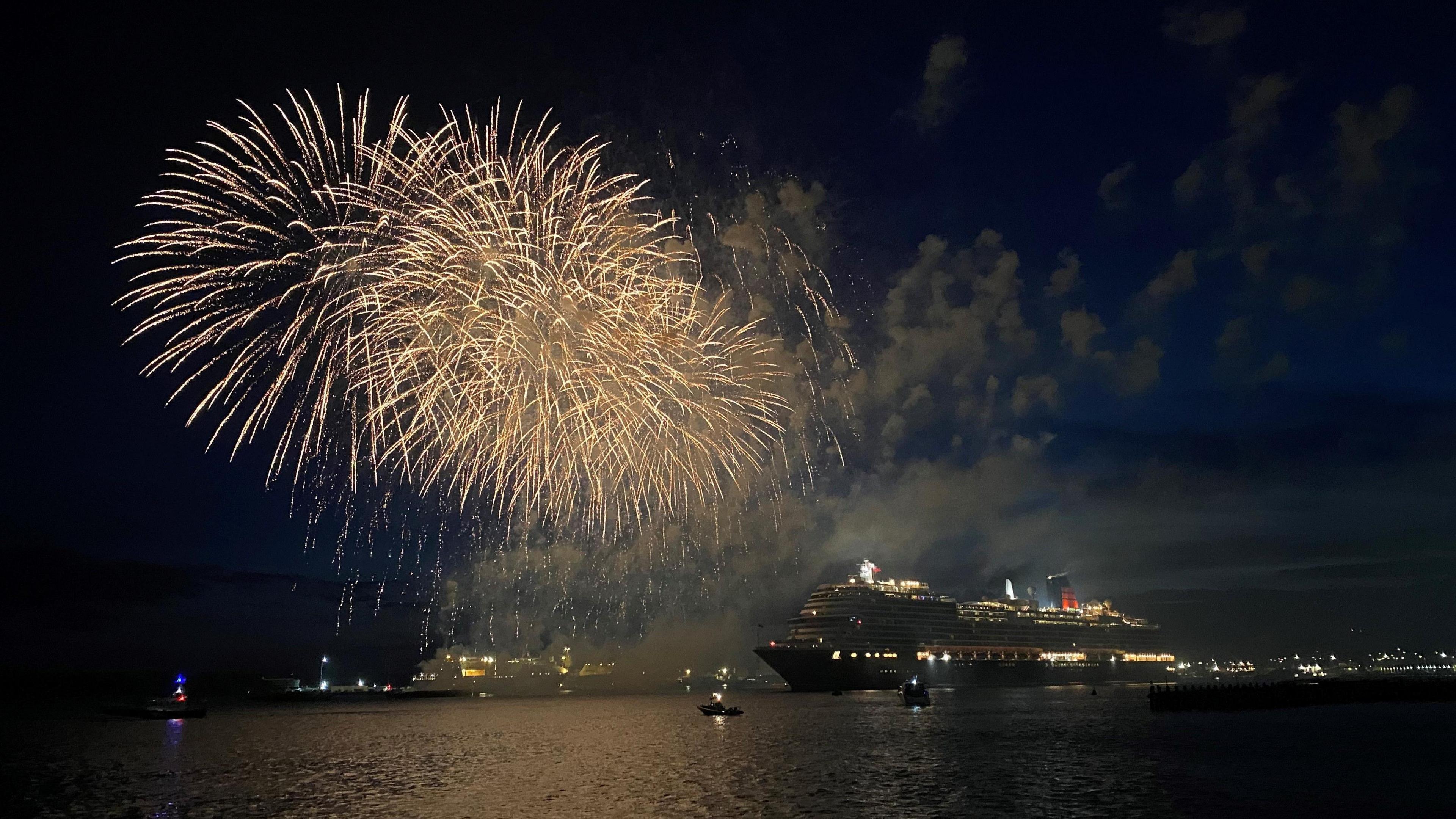
- Published1 May 2024
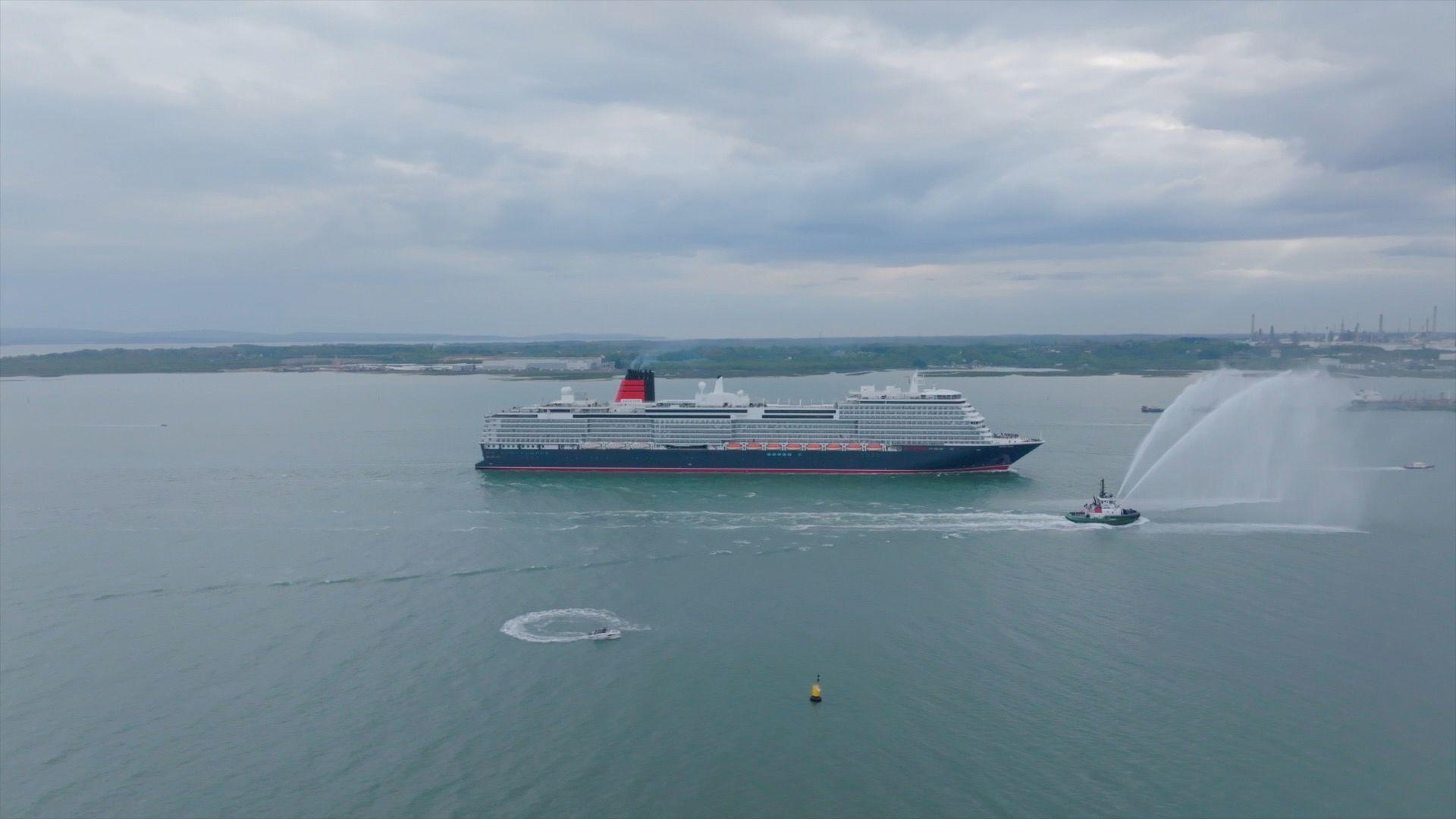
- Published6 May 2015
- Published25 May 2015